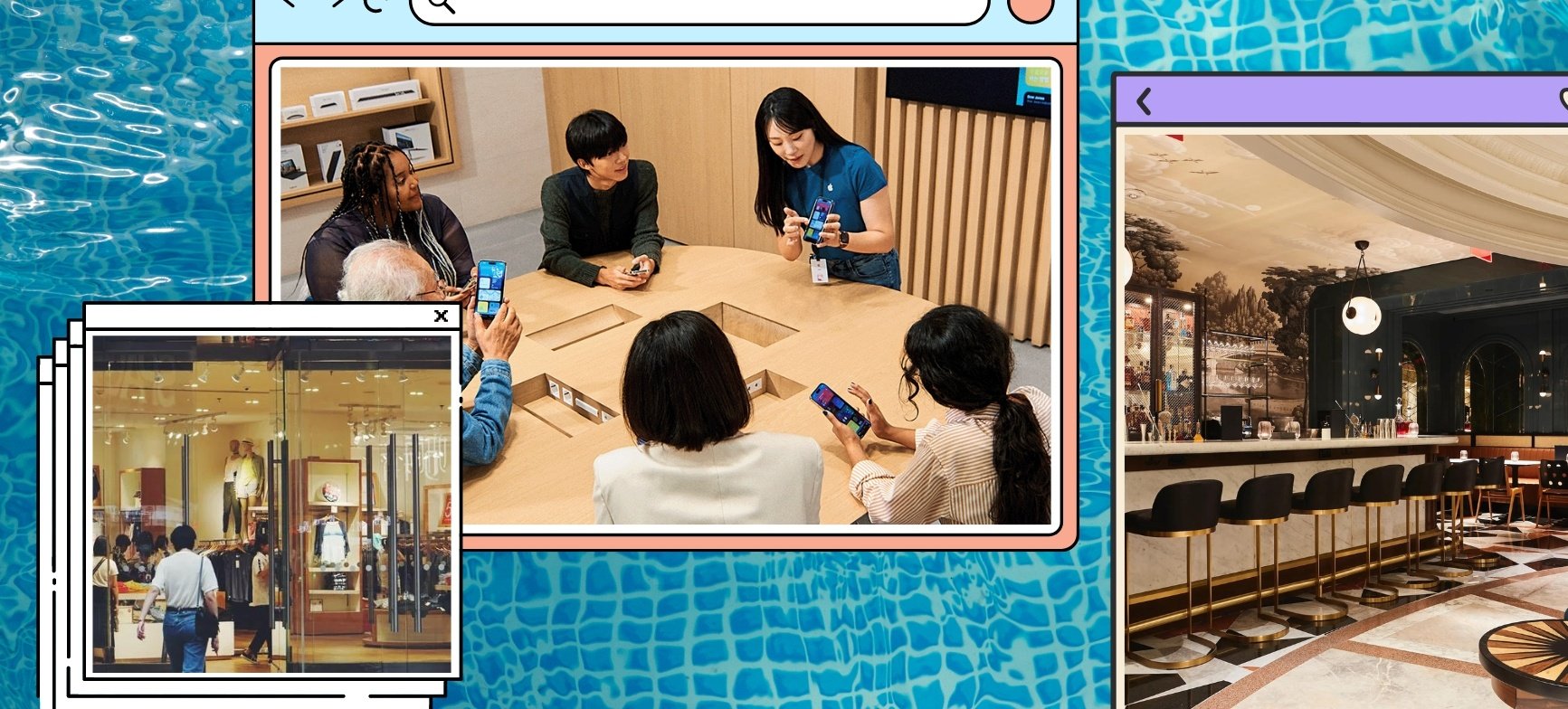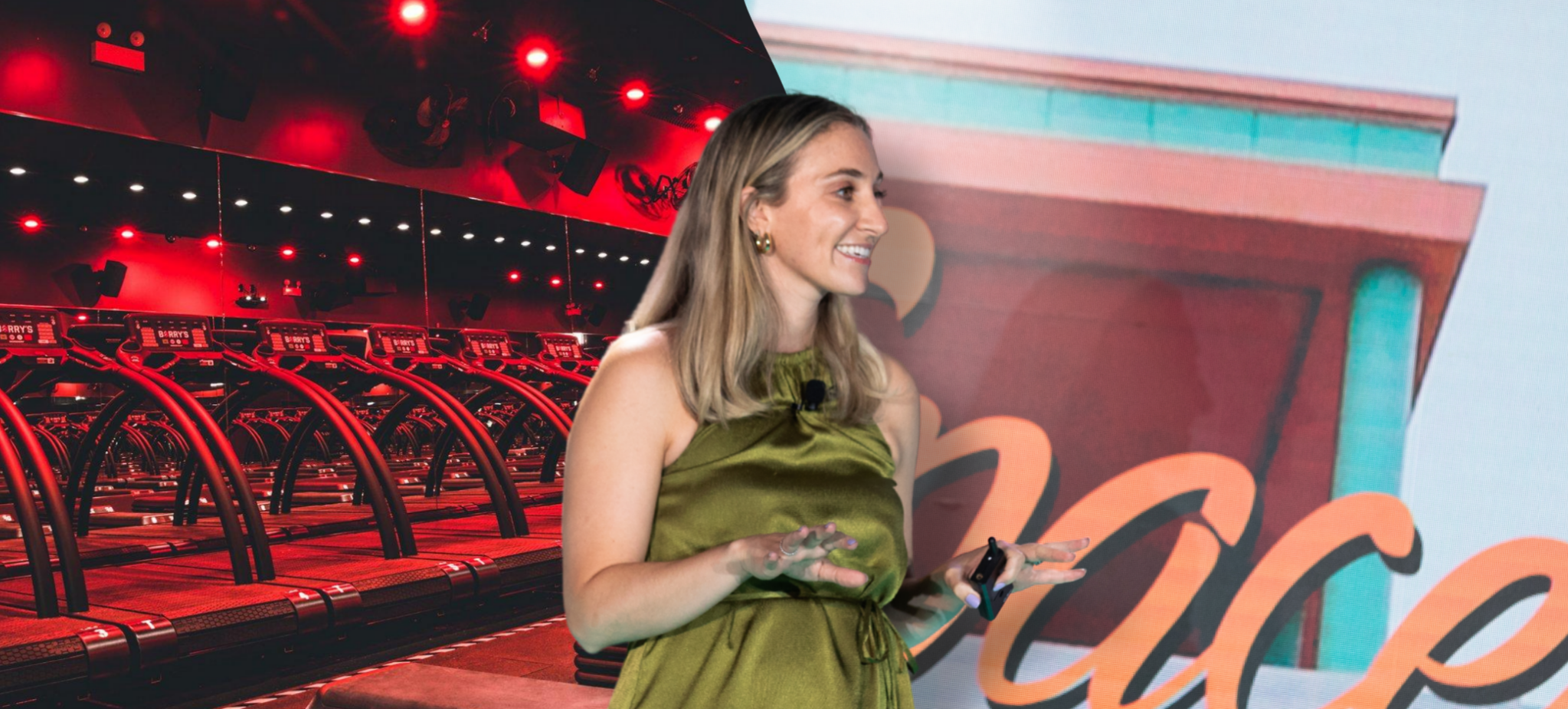In an era when digital interfaces dominate our daily lives, the physical retail store must evolve.
For several years now, store design leaders have been rethinking brick-and-mortar spaces to meet consumers' changing needs and expectations, especially around convenience—in a way, mimicking the online shopping experience.
But with digital fatigue increasing and people craving meaningful human interaction more than ever… what's the next iteration of effective and desirable stores?
At RetailSpaces, Matt Marcotte, Founder and Principal at M2 Collaborative, offered a compelling vision for the future. Drawing from his extensive experience with brands like Apple, Tory Burch, Gap, and Bergdorf Goodman, Marcotte argued that the key to retail success lies in reimagining stores as hubs of human connection and experience.
The Shifting Retail Landscape
Marcotte kicked off by highlighting a striking statistic: "71 percent of consumers switched brands in the past year."
This figure, up from 50 percent in 2021, indicates that consumer loyalty is more fluid than ever.
"90 percent of those consumers that have switched say they will continue to switch," he added, emphasizing the challenge retailers face in retaining customers.
Despite predictions that the pandemic would permanently shift consumer behavior online, Marcotte noted that "human nature brought us back to what we like to do." People still crave physical spaces and human interactions.
What Customers Really Want
According to Marcotte's research:
- 66 percent of customers expect brands to understand their unique needs
- 68 percent expect brands to demonstrate empathy
- 76 percent expect consistent interactions across departments
"Customers are looking to brands and retailers for human traits and human responses," Marcotte explained.
This desire for connection is particularly poignant in our current climate, he said, where "post-pandemic, there are record levels of loneliness, depression, and anxiety."
The CADET Model for Customer Relationships
Marcotte introduced his CADET model—Connect, Assess, Deliver, Exceed, Transform—as a framework for building authentic customer relationships.
"This isn't just a selling model," Marcotte emphasized, "It's actually the stages of a customer relationship. Actually, it's the stages of a human relationship."
He explained that these stages mirror how we form connections in our personal lives: first connecting with someone, then assessing their needs and what we can offer, delivering on promises, exceeding expectations, and finally transforming the relationship to a deeper level.
Marcotte then demonstrated this framework in action, explaining how he applied a human-centric approach in previous roles to create meaningful and lasting connections with customers.
Bergdorf Goodman: Elevating the Men's Shopping Experience
At Bergdorf Goodman, where Marcotte served as COO, they reimagined the men's store experience.
"We brought back the men's bar," he explained, "The idea was to create a place of community and connection."
They elevated the concept by hiring a Michelin-star chef and a master sommelier for their F&B program, ensuring every aspect of the experience matched the luxury brand's standards. To extend this exclusive atmosphere beyond the bar's 25 seats, they developed a geo-tagging app.
"I could be sitting downstairs getting shoes, and I could order a drink and it would come to me," Marcotte said. The initiative transformed the entire store into a high-end men's club experience.
Gap: Tailoring the Shopping Journey
At Gap, Marcotte and his team recognized that men and women shop differently.
"Men are more procurement shoppers, women are more journey shoppers," he noted.
This insight led them to design distinctly different store experiences. The men's section focused on clarity and efficiency, while the women's area emphasized discovery, "more like Anthropologie," Marcotte compared.
Hitting home the importance of being aware of and catering to specific customer behaviors, Marcotte explained what happened when they made too big a change in how the men’s section was laid out.
"When we actually went from selling denim to trying to sell khaki, we moved the denim wall to the side and khaki to the back. Men would come in and say, 'You don't sell denim anymore?’ It literally moved five inches that way," Marcotte recounted.
Apple: Redefining Service Excellence
At Apple, Marcotte tackled a significant pain point: long repair times at the Genius Bar.
"When I first got there, we were seven-day turnaround. You'd bring your computer in, it would take seven days to fix it," he said.
Recognizing the critical role of devices in customers' lives, Marcotte challenged the team to improve. "Within six months, we got it down to a day." 
The Power of Curiosity
Marcotte concluded by stressing the importance of curiosity in building customer relationships.
"Only 5 percent of brands and retailers that a customer engages with ever ask them anything about themselves," he revealed—a big missed opportunity.
In a world where digital connections often leave us feeling isolated, Marcotte's message is clear: physical stores have a unique opportunity to provide the human connection we all crave. By focusing on creating meaningful, human experiences and fostering genuine relationships, retailers can drive participation, profit, and lasting loyalty.
Posted by
Physical Retail Reimagined.
RetailSpaces is a community for store development and design innovators.
March 29-31, 2026 | San Antonio, TX
Learn More!








Comments